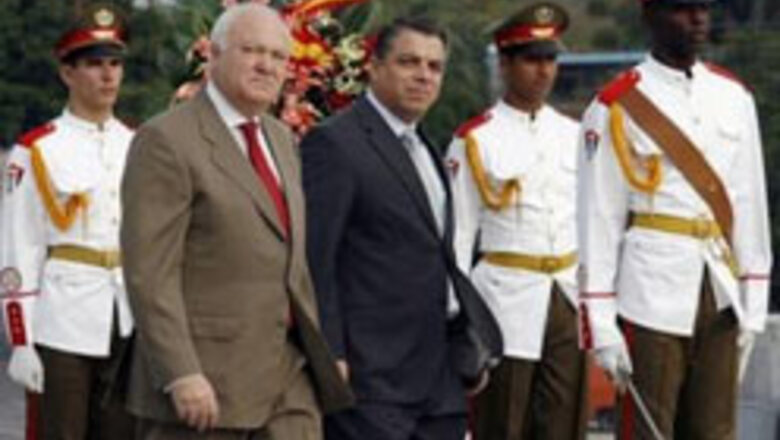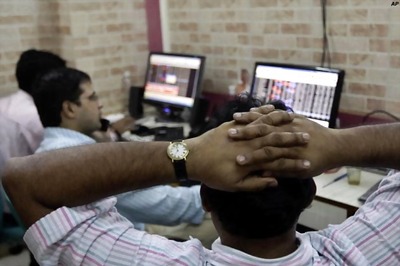
views
Havana: Spain's foreign minister visited Cuba on Monday in a possible first step toward thawing relations between Cuba and the European Union, frozen since a 2003 dispute over dissident arrests.
Miguel Angel Moratinos, the most senior EU government official to go to the communist-run island since the dispute, will meet on Tuesday with acting President Raul Castro, who took over in July after Fidel Castro underwent stomach surgery.
On Monday, Moratinos met with Cuban Foreign Minister Felipe Perez Roque, who said his visit opened "a new path" in Cuban-Spanish relations and possibly in Cuban-EU relations. He also said there could be cooperation in human rights.
"We have broached the theme, and we are making progress, of establishing a permanent and formal mechanism for political dialogue, which doesn't exclude the subject of international cooperation to promote human rights," Perez Roque told reporters during a reception at the Spanish ambassador's residence.
EU governments and human rights groups repeatedly criticise Cuba for trampling on human rights and repressing dissent.
Havana says Cuba's small and fractious dissident movement is made up of "mercenaries" on the payroll of its longtime ideological enemy, the US government.
Moratinos said it was time to reopen communication.
"It's absolutely unthinkable that Spain cannot maintain, defend and develop an intense, constructive and communicative policy with the Cuban authorities," he said.
"We also want what should be a relationship between the European Union and Cuba."
PAGE_BREAK
Conditions for talks
A crackdown on dissent in March 2003 prompted the EU to shun high-level talks with Cuba and invite dissidents to events at European embassies in Havana, upsetting the Cuban government and leading to a freeze in ties.
Lower-level meetings resumed in 2005 but relations remain cool due to EU calls for the release of political prisoners, including the 75 detained and sentenced in 2003.
There are more than 300 political prisoners in Cuban jails, according to the Cuban Commission for Human Rights, an illegal but tolerated group.
Perez Roque said Cuba was discussing human rights with the Spanish delegation, but would only do so with the EU if full diplomatic relations were restored and if the EU tore up its 1996 "Common Position," which seeks democracy in Cuba.
He said the EU should treat Cuba with the same respect that Cuba showed it. He said he was confident of an improvement.
"Spain is today, within the European Union, a privileged negotiator," Perez Roque said.
"We recognize this government's authority to talk to us on a basis of perfect equality, including on the most complex issues."
Fidel Castro has yet to reappear in public since handing day-to-day power to his younger brother and defense minister, Raul Castro.
However, officials say he has recovered enough to take a more active role in government.
Moratinos' visit, the first by a Spanish foreign minister in nine years, comes shortly after Perez Roque visited several EU countries.
Spanish media has reported that a diplomat in Spain's delegation could meet Cuban dissidents later this week.
Spain is one of Cuba's biggest foreign investors and trade partners after Venezuela and China. EU trade with Cuba totaled around two billion euros ($2.7 billion) in 2005.



















Comments
0 comment